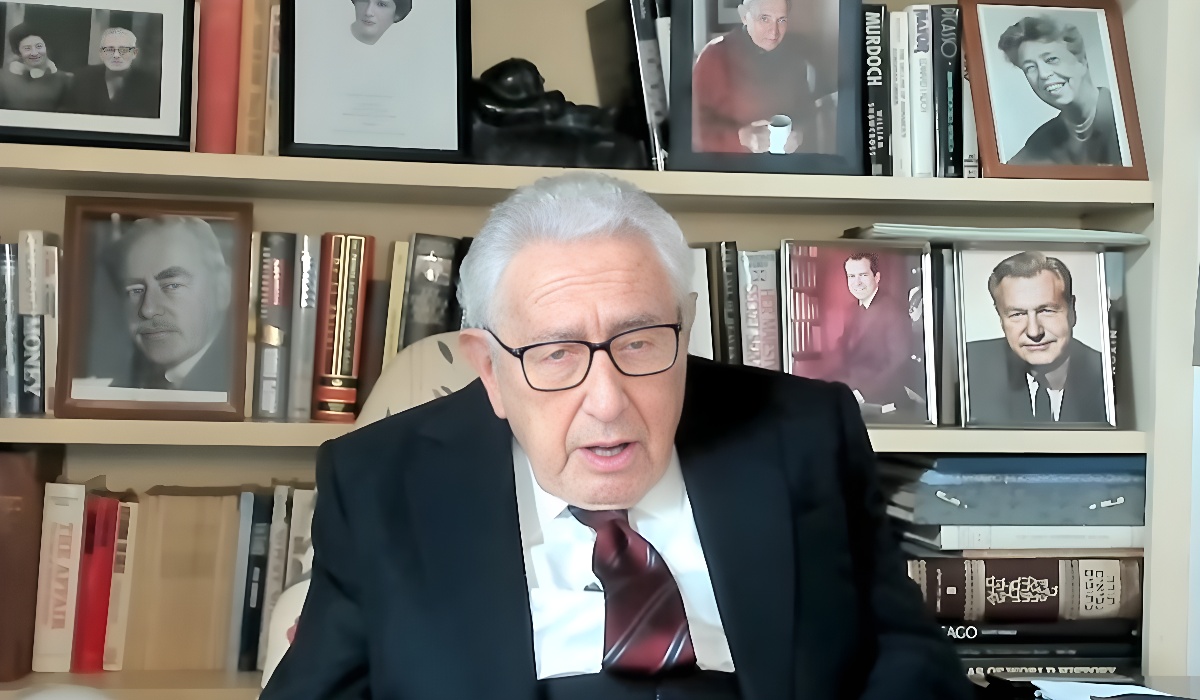On Thursday morning the world received the somber news that Henry Kissinger had passed away at his home in Kent, Connecticut at the age of 100. A figure of immense influence and controversy, Kissinger’s life was marked by his contributions to international relations, diplomacy, and his role in shaping the global political landscape. As we reflect on his legacy, it is essential to delve into the life of this enigmatic statesman to understand how he left an indelible mark on the world.
Henry Alfred Kissinger was born on May 27, 1923, in Fürth, Germany. Fleeing the Nazi regime with his family in 1938, the young Kissinger arrived in the United States, where he would later become a naturalized citizen. His academic prowess earned him a scholarship to Harvard University, where he pursued a bachelor’s degree in political science before obtaining a master’s and a doctorate.
Kissinger’s academic journey laid the foundation for his future career in international relations. His brilliance and deep understanding of geopolitics attracted attention, eventually leading him to become a professor at Harvard, where he contributed significantly to the field of political science.
Kissinger’s transition from academia to practical diplomacy marked a turning point in his life. In 1968, he was appointed National Security Advisor by President Richard Nixon. In this role, Kissinger played a crucial part in shaping U.S. foreign policy during a tumultuous period, including the Vietnam War and the opening of diplomatic relations with China.
One of Kissinger’s most significant achievements was his involvement in the negotiations that led to the Paris Peace Accords in 1973, effectively ending U.S. involvement in the Vietnam War. His “shuttle diplomacy” in the Middle East also contributed to easing tensions between Israel and its Arab neighbors.
In 1973, Kissinger became the 56th U.S. Secretary of State under President Nixon, and later continued in that role under President Gerald Ford. His approach to foreign policy was grounded in realism, often referred to as “Realpolitik.” This pragmatic approach prioritized the pursuit of national interests, often involving a balance of power and strategic alliances.
Kissinger played a key role in détente, a policy aimed at easing Cold War tensions between the United States and the Soviet Union. His efforts culminated in the Strategic Arms Limitation Talks (SALT), which aimed to control the arms race between the superpowers.
While Kissinger’s contributions to international diplomacy were widely recognized, his legacy remains clouded by controversies. Critics point to his involvement in U.S. covert operations, including the secret bombing of Cambodia during the Vietnam War, and allegations of human rights abuses in countries such as Chile and East Timor.
The realpolitik approach also faced criticism for its perceived disregard for human rights concerns in favor of geopolitical stability. The balance between pragmatism and morality in foreign policy continues to be a subject of debate, with Kissinger’s legacy serving as a touchstone for these discussions. Henry Kissinger’s death marks the end of an era and prompts reflection on a complex and influential life. His impact on international relations, particularly during the Cold War, cannot be overstated. As the world remembers him, it is essential to acknowledge both his accomplishments and the controversies surrounding his legacy, recognizing that Kissinger’s life was intertwined with the complexities of global politics during a pivotal period in history.









